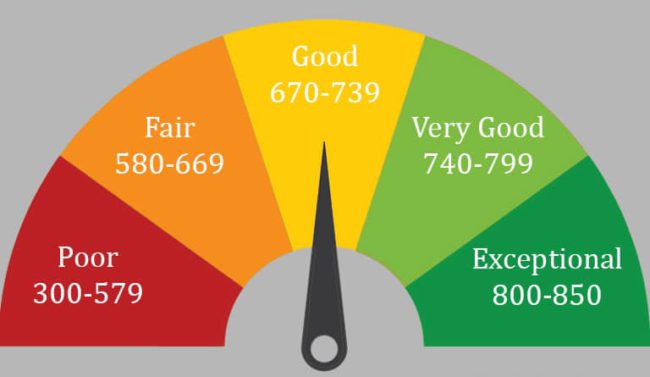In January 2020, FICO rolled out new rules for calculating credit scores, a system called FICO Score 10, which could dramatically impact—for better or for worse—how your credit score is calculated. FICO claims that their new program suite will deliver increased predictive power, precision, and flexibility based on trended data. Effectively, instead of looking at a snapshot of your credit at a fixed moment in time, FICO Score 10 will look at your credit over the last two years to make a better forecasting model. So discover how FICO changes may affect small business owners.
What’s changed with the new FICO scoring system?
Due to fluctuations in the credit reporting agencies and their standards, there has been a bit of a credit creep, as scores have risen across the board since 2009. These higher scores represent some amount of credit worthiness—a sign of the strengthening economy—but also reflect the effects of a settlement between several states and the nation’s three biggest credit reporting agencies, TransUnion, Equifax, and Experian. As a result of that settlement, several years’ worth of negative credit items were removed from millions of Americans’ credit ratings.
While FICO has been adamant that the rise in scores reflects increased credit worthiness, some lenders are not so sure, so FICO has developed a new system: FICO Score 10 T.
The primary change is that the new score takes into account the past two years of debt levels rather than just the previous month. This means that if you hit a bump in the road—perhaps going into a lot of debt for a vacation or a holiday—but then pay that off shortly thereafter, then your score will improve. (Previously, such a hiccup would have been seen in isolation and would been indicative of your overall credit worthiness.)
The new system looks at two years of historical debt data: if your debt has been increasing over time (the past two years specifically) then your score will likely decrease as this is seen as a sign that you are slipping into a more systemic pattern of credit peril.
Will my score go up or down?
It depends. If you’ve always paid your credit cards on time but have been holding onto a balance that hasn’t been going down, then it could negatively affect your credit score—possibly by as much as 20 points or more.
On the other hand, if you have been up-to-date on your credit cards, and have just recently put a large purchase on them, but have otherwise had a relatively clear credit record, then your score could go up, again by as much as 20 points.
For the most part, the rules of credit remain the same. Pay on time and work on lowering your debt. If you previously had problems with this, but have changed your ways, be patient and the new two-year window of FICO Score 10 will catch up to you.
The important thing is that the new FICO score takes a close look at how your debt ratio is trending over time, not just in the most recent months. If your overall debt is shrinking and has been for months, then FICO will view you favorably.
When does it go into effect?
The new changes are expected to go into effect summer of 2020. In the meantime, the fundamentals of maintaining a good credit score still apply; pay debts on time, maintain low credit card balances and don’t get more credit than you need (or apply for credit too often).
Can I get business funding with a low personal FICO score?
Initially, you may have trouble getting business funding with a low FICO score. As a small business owner, you’re going to need to raise capital somehow, and the most often used methods of doing so are small-business loans, personal loans, and credit cards. All of these will require you to have a good credit score to apply.
According to the 2017 Small Business Credit Survey, 40% of small businesses applied for some form of financing in 2017. Of those that applied, 82% received some financing and 58% received the full amount they sought.
For business owners with bad credit, getting a traditional bank loan can be very difficult. However, alternative lenders offer multiple funding options for those with bad credit. Some have no credit score requirements and consider additional factors such as business revenue and time in business.
While there are lenders, such as Small Business Funding, who will loan small businesses money with FICO scores as low as 500. However, bear in mind that the financing requirements may be significantly stricter than a traditional bank loan or loan options geared towards stronger credit.
How do I build up my business credit score?
Many things can help your business’s credit score, but chief among them are revenue, time in business, customer service ratings, and other specialized qualification ratings. Loan terms may be short for businesses with low credit scores, and other factors may come in, such as the business’s ranking with the Better Business Bureau.
The FICO credit score ranges are:
Exceptional (800-850)
Very Good (740-799)
Good (670-739)
Fair (580-669)
Poor (300-579)

When a business loan is marketed as for “bad credit” it is generally targeted at anyone with a score in the Fair or Poor range on the FICO scale. Because they have little creditworthiness in the eyes of lenders, people with a credit score in those ranges will have a difficult time getting small business loans from traditional bank lenders. Alternative lenders, as mentioned above, are the easiest course of action for people in those situations.
How do I build up my personal credit score?
As credit scores are used for everything from buying a house to buying a car to even, sometimes, passing a background check for a sensitive job, raising your personal credit score is very important.
The good news is that you can directly affect it. Payment history and credit utilization ratios (how much credit you have available vs. how much you’re using) are crucial factors. But here are some techniques you can use to boost your score:
1- Pay Your Bills on Time:
It may seem simple, but when a lender is deciding whether or not to give you money, they want to make sure that you have a proven track record of paying that money back. You can influence this credit scoring factor by following through on your credit commitments and paying your bills every month. Paying late or less than what you agreed can negatively impact your score.
2- Get credit for paying oft-neglected payments on time:
Sometimes phone bills and utilities are not included in your credit score, but if you’re looking to build your credit, contact the three credit reporting agencies and see if they can track your routine payments of these common bills.
3- Apply for and open new credit accounts only when needed:
Just because credit agencies look at credit ratios (available credit vs credit used) doesn’t mean that you should increase your credit limit to the highest possible. Every time you apply for credit, your score will take a minor, temporary dip, and if you are applying frequently, this dip will become bigger and more common.
4- Don’t close unused credit cards:
Keeping unused credit cards open and available—as long as they’re not costing you fees—is a good idea because it positively affects your credit ratio. Owing the same amount but getting rid of available credit may lower your credit score.
5- Dispute any inaccuracies on your credit report:
It’s always important to check your credit report—you can check it for free once a year, and sometimes more often, through various services—and being able to see where your credit is being misrepresented is valuable. You can find out if your identity is being stolen, if a creditor is taking action against you, and if you’ve missed payments that you thought you made.
How Long Does it Take to Rebuild a Credit Score?
Building a credit score is a waiting game. If you have negative information on your report, such as late payments, bankruptcies, or frequent credit inquiries, time is the best cure. There is no such thing as a quick fix.
Delinquencies remain on your credit report for seven years. A bankruptcy may remain for as long as ten. Inquiries remain for two years.
The most important thing is to monitor your score and make sure that you’re not digging yourself deeper into a hole. Good credit can be restored, through diligence and patience.

